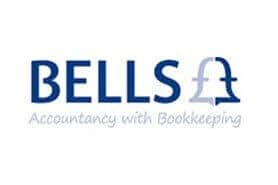April is the time of change. Spring is finally in the air and the new financial year kicks in. We thought it would also be a good time to do a quick recap of what you can expect for the forthcoming financial year – are you likely to be better or worse off? There are a few changes happening this year and so it’s worth a quick look to see how they may affect you and your business. All changes come into effect from the 6th of April.
The good news
Overall the news is good when it comes to income tax, with almost all taxpayers being better off than before. The basic tax rate threshold rises to £11,850 and the higher rate income tax band of 40% doesn’t kick in until a threshold of £46,350, which is an increase of £1,350. These increases are in line with inflation, so while previous threshold rises may have been more generous, taxpayers will not be worse off as a result of inflation.
The threshold for paying inheritance tax has also changed. The main exemption remains unchanged at £325,000 for any estate, however, the additional exemption rises by £25,000 (from £100,000 to £125,000) leading to a possible saving of £10,000 on inheritance tax bills.
Minimum and Living wage increases also take effect – for full details you can have a quick look at last month’s article where these were covered in full.
The not so good news
Increases on the one hand unfortunately come with a downside. As a business owner, the increases in the minimum and living wages will mean increased payroll expenditure for you so you will need to adjust your figures to account for them.
For those workers and businesses with an auto-enrol pension, there are changes afoot here as well. Nine million affected workers will have to pay in a minimum of 3%, up from 1%, so a significant hike. As an employer, your contribution will have to be 2%, another addition to your bottom line.
If you travel for business, the increase in Air Passenger Duty for medium- and long-haul flights (i.e. distances above 2,000 miles) increases by an extra £3 for economy class and £6 for business class. For short-haul flights, the tax is frozen, so there is some good news.
Perhaps more importantly, and one change that is likely to affect a large number of businesses, Vehicle Excise Duty for new diesel cars that do not meet the strict European pollution standards (in particular RDE2) the increase will be up to £310 per year.
It is also worth noting that for the first time ever, Scottish taxpayers are now affected by different rates than those in England and Wales. There is now a new intermediate tax rate and the 45% of the population that earns more than £33,000 will be affected by increases in higher tax rate bands.
For further details or an assessment of how your business may be affected and what steps you may need to take to comply with the changes, our team at Bells Inc. Hamilton Stewart would be happy to help and advise. Get in touch with us by phone or email on 020 8763 1711 and at any time.


